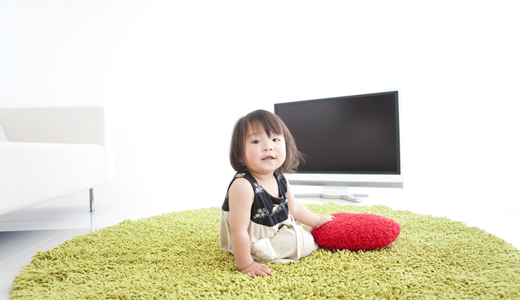Grayson Dobra was about to turn 2. His mother, L’erin, wanted to throw him a party he’d never forget (or, at least not for for a day or two). But what sort of party theme could inspire glee and wonder in her little boy? Should she festoon the living room with pictures of cute little animals? Nah, too cliché. Clowns? Pish, don’t want the child having nightmares, do we? Mickey Mouse? No, that was last year’s party.
No, L’erin decided to theme the party around Grayson’s most endearing—or, at least, enduring—current fascination: personal injury lawyer Morris Bart.
Bart is apparently a familiar figure on Louisiana television. A typical Morris Bart commercial goes something like this:
“He’s always been very drawn to Morris Bart commercials,” L’erin told The Wall Street Journal’s Law Blog. “He used to watch ABC and color videos, and he used to love those. But now he wants to watch Morris Bart commercials.” And if he can’t watch the spots in real time, he’ll watch ’em on YouTube.
Now, the mind of a toddler is a mysterious thing. What would Grayson like about these commercials? Is it the funky, bass-heavy music in the background? Mr. Bart’s curiously mesmerizing chin cleft? Does he simply have an appreciation of the American legal system and its subsequent commercialization? I cannot say.
Pediatricians, of course, would argue that Grayson shouldn’t be watching Morris Bart at all.
This is not a knock on Grayson’s mom: The toddler is far from unusual. According to healthychildren.org, about 90% of 2-year-olds watch at least some television. My own kids probably did. I’m sure my own mother—not knowing what I’d be doing for a living—plopped me in front of the TV on occasion when I was that age. (I can’t remember what I watched when I was 2, but one of my earliest memories is watching Julia Child and The French Chef). We all turned out relatively OK.
But by 1999—way too late to help me or my kids—the American Academy of Pediatrics was saying that parents should keep their children away from all TV before the age of 2. The Academy wrote (presumably with a pen large enough for all the Academy’s members to hold), “research on early brain development shows that babies and toddlers have a critical need for direct interactions with parents and other significant caregivers … for healthy brain growth and the development of appropriate social, emotional and cognitive skills.”
See, babies and toddlers are programmed to learn from other, older people. When we interact with these tiniest of humans, they’re soaking in a bewildering amount of information—our words, gestures, inflections and who knows what else. Researchers who study these early interactions record them and then replay them in slow motion in order to catch all these overlapping communicative tools in action. “A toddler learns a lot more from banging pans on the floor while you cook dinner than he does from watching a screen for the same amount of time, because every now and then the two of you look at each other,” according to healthychildren.org.
Television, on the other hand, is a very confusing entity for a 2-year-old. We adults may have an appreciation for Mr. Bart’s chin cleft, but scientists doubt whether babies and young toddlers make a connection between these 2-D TV images and the 3-D real-world around them. Some studies suggest that young children who watch a lot of television tend to have worse language skills and short-term memories, and they’ll likely even learn to read later than their non-TV-watching peers.
It’s telling that the most popular shows for small children are pretty slow affairs, filled with slower cuts between scenes and gentle voices. My kids loved Blues Clues, which boasted both and required viewers to think about what they were watching. Back in my day, Mr. Rogers’ Neighborhood was a child’s gentlest introduction into the surreal world of television. But The French Chef, what with its static camera and Julia Child’s lilting voice, might’ve been pretty good for a little kid like me, too. It would’ve felt closer to genuine human interaction.
Morris Bart’s commercials, with their snappy cuts, bright graphics and stimulating music, might give us adults an urge to call a personal injury attorney right now (I am dealing with a nagging, work-related paper cut), but to kids like Grayson, such ads are simply visual noise—stimulation without any real purpose.
Unless, of course, Grayson is innately advanced for his age and has a bright legal future ahead of him. If he starts asking for dark suits by the age of 5 and issues subpoenas to his cousins, we’ll know.






Recent Comments